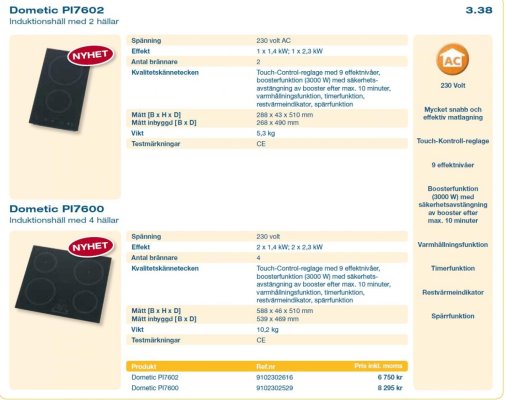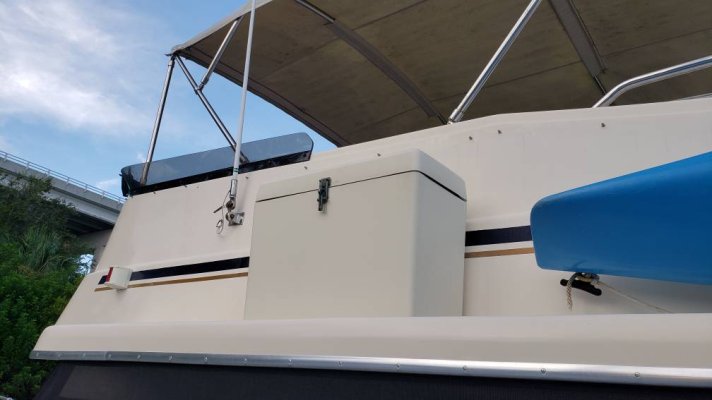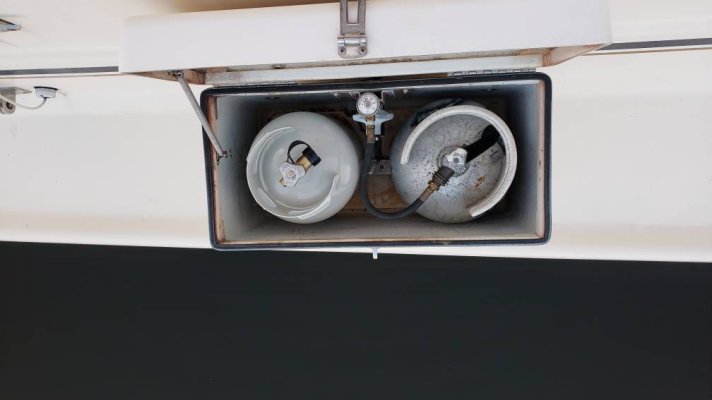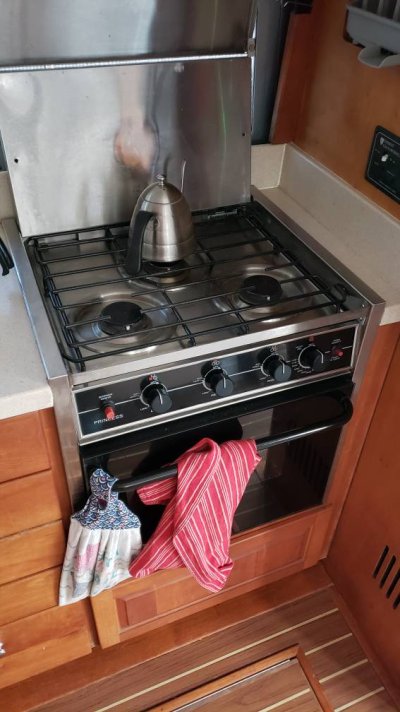Hi OldDan1943,
Looking around a bit online, it seems that Dometic induction stoves are not available globally(??).
Though, I did find this info relevant to North America
https://www.campingworld.com/dometic-ci21-induction-cooktop-107853.html (120V)
https://www.dometic.com/en-us/us/news/us/induction-cooktop
For what it's worth my Dometic stove is a 2-burner, model PI7602. 230v, with one 1400w burner and one 2300w burner. I have uploaded a photo of the 2012 Swedish Dometic catalogue page. At least the technical specifications will be readable for you. Maybe you can ask a local Dometic rep, with the help of this page/model number and let them do the legwork internally to see if this is (or the equivalent) is available anywhere in North America. I find Dometic's product offering and marketing strategy inconsistent and incomprehensible, in many respects. Probably because they are such a large company composed of many acquired (but not fully integrated) small companies.
As for my "oven"... It's a Sharp 230v microwave/convection/oven combination with broiler grill. I can only run the broiler grill when on shore power, however, as my inverter can't handle it...and even then, I sometimes have to use my inverter in "power assist" mode to help the shore power. This is the oven that came with the boat from the manufacturer.




